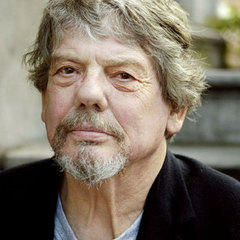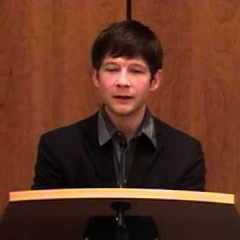Nassim Nicholas Taleb Quotes - Page 9
If I could predict what my day would exactly look like, I would feel a little bit dead.
Nassim Nicholas Taleb (2016). “Incerto 4-Book Bundle: Fooled by Randomness The Black Swan The Bed of Procrustes Antifragile”, p.97, Random House
Writing is the art of repeating oneself without anyone noticing.
Nassim Nicholas Taleb (2010). “The Bed of Procrustes: Philosophical and Practical Aphorisms”, p.45, Random House
Nassim Nicholas Taleb (2010). “The Black Swan: Second Edition: The Impact of the Highly Improbable Fragility"”, p.25, Random House
Nassim Nicholas Taleb (2010). “The Black Swan: Second Edition: The Impact of the Highly Improbable Fragility"”, p.209, Random House
To be completely cured of newspapers, spend a year reading the previous week's newspapers.
Nassim Nicholas Taleb (2016). “Incerto 4-Book Bundle: Fooled by Randomness The Black Swan The Bed of Procrustes Antifragile”, p.1722, Random House
Nassim Nicholas Taleb (2010). “The Bed of Procrustes: Philosophical and Practical Aphorisms”, p.90, Random House
Nassim Nicholas Taleb (2010). “The Bed of Procrustes: Philosophical and Practical Aphorisms”, p.73, Random House
This is the central illusion in life: that randomness is a risk, that it is a bad thing.
"Antifragile: Things That Gain from Disorder". Book by Nassim Nicholas Taleb, 2012.
Most so-called writers keep writing and writing with the hope, some day, to find something to say.
Nassim Nicholas Taleb (2016). “Incerto 4-Book Bundle: Fooled by Randomness The Black Swan The Bed of Procrustes Antifragile”, p.1751, Random House
Nassim Nicholas Taleb (2012). “Antifragile: Things That Gain from Disorder”, p.245, Random House
Nassim Nicholas Taleb (2010). “The Black Swan: Second Edition: The Impact of the Highly Improbable Fragility"”, p.5, Random House
Nassim Nicholas Taleb (2010). “The Bed of Procrustes: Philosophical and Practical Aphorisms”, p.42, Random House
My biggest problem with modernity may lie in the growing separation of the ethical and the legal
Nassim Nicholas Taleb (2016). “Incerto 4-Book Bundle: Fooled by Randomness The Black Swan The Bed of Procrustes Antifragile”, p.1764, Random House
Nassim Nicholas Taleb (2007). “Fooled by Randomness: The Hidden Role of Chance in Life and in the Markets”, p.224, Penguin UK
"The Black Swan: The Impact of the Highly Improbable". Book by Nassim Nicholas Taleb, 2007.
We learn the most from fools ... yet we pay them back with the worst ingratitude.
Nassim Nicholas Taleb (2010). “The Bed of Procrustes: Philosophical and Practical Aphorisms”, p.83, Random House
Nassim Nicholas Taleb (2010). “The Black Swan: Second Edition: The Impact of the Highly Improbable Fragility"”, p.69, Random House







